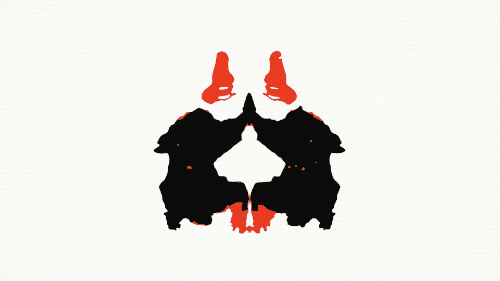What are the different types of psychological tests? Psychological Tests are of different types: Intelligence Tests, Aptitude Tests, Vocational Tests, Attitude Tests, and Personality Tests, amongst others. Psychological Testing is mainly used for psychological diagnosis, screening job candidates, academic placements, identifying certain behaviors, research purposes, etc. The classification of psychological tests can be as per their nature or functions. Read this blog to know all about types of psychological tests, their uses, characteristics, and more!
This Blog Includes:
- What are Psychological Assessments?
- Characteristics of Psychological Tests
- Types of Psychological Tests
- Types of Intelligence Tests
- Personality Tests
- Aptitude Tests
- Speed and Power Tests
- Emotional Intelligence Test
- Neuropsychological Tests
- Individual and Group Tests
- Essay and Objectives Tests
- Types of Psychological Tests PPT
- Uses of Psychological Testing
- History of Psychological Testing
- Limitations of Psychological Testing
- [Bonus] Must-Watch Psychological Thrillers
- FAQs
What are Psychological Assessments?
Psychological Assessments or Psychological Tests are verbal or written tests formed to evaluate a person’s behavior. Many types of Psychological tests help people understand various dynamics of the human being. It helps us understand why someone is good at something, while the other is good at another. However, Humans are complex beings that can’t be defined and classified under certain branches. The subjective nature of humans and individual differences has quite often raised criticism in psychological testing.
The classification of the types of psychological tests is as follows:
- As per the nature of psychological tests in terms of standardized and non-testing methods of testing
- As per the functions of psychological tests such as intelligence tests, personality tests, interest inventories, aptitude tests, etc.
Characteristics of Psychological Tests
Here are the key characteristics of Psychological Tests:
- Reliability: The psychological assessment/test must produce the same result no matter when it’s taken.
- Validity: The psychological test must measure what it’s been created to assess.
- Objectivity: The assessment must be free from any personal bias for its scoring, interpretation of scoring, or administration.
- Standardization: The test must be standardized in terms of its place, material, and time for the assessment as well as its environment.
Types of Psychological Tests
Now that you know about their origins, let’s explore the top and most popular psychological tests.

Here are the major nine types of Psychological tests:
- Personality Tests
- Achievement Tests
- Attitude Tests
- Aptitude Tests
- Emotional Intelligence Tests
- Intelligence Tests
- Neuropsychological Tests
- Projective Tests
- Observation (Direct) Tests

Types of Intelligence Tests
The pioneer of Intelligence Tests, Alfred Binet was the first one to construct the IQ test for assessing French students to identify which students need special assistance. He soon realized that a few students could solve much more advanced questions which an average student couldn’t. He then realized that various factors play a role in assessing the intelligence of a person which makes the term multi-dimensional. He then constructed the Binet-Simon test which was revised and given the name Stanford-Binet test which became the standard intelligence test in the U.S. Soon, many intelligence tests were formed for different groups of people. Psychologists started intervening the possible variables and Psychology tests like Wechsler Intelligence Scales, Raven’s Progressive Matrices, etc.
Here are the major types of intelligence tests:
- Wechsler Individual Achievement Test
- Woodcock-Johnson III Tests of Cognitive Disabilities
- Wechsler Adult Intelligence Scale
- Stanford-Binet Intelligence Scale
- Peabody Individual Achievement Test
- Universal Nonverbal Intelligence
- Differential Ability Scales
Personality Tests
Earlier, Phrenology (the measurement of the bumps on the skulls) was used to assess someone’s personality. A personality test evaluates our behaviours, emotions, behavioural and environmental traits, attitudes and even clinical disturbances in people. Each personality test is used to measure a certain variable or compare two variables. For example, adolescent emotional problems or psychopathologies are screened using The Minnesota Multiphasic Personality Inventory (MMPI-A). There are various versions of the MMPI depending on the sample type you want to test.

Courtesy: Pinterest

Courtesy: The Video Suite
Another unique type of personality test is the projective assessment. Very commonly used Projective assessments are the Thematic Apperception Test and the Rorschach Inkblot test. These projective psychological tests are formed to test the response of a person to a certain stimulus which elicits different hidden emotions, underlying thoughts or beliefs using pictures.
Here are the types of personality tests in psychology:
- Objective Tests of Personality: MMPI
- Projective Tests of Personality: Rorschach Inkblot Test, The Thematic Apperception Test
Aptitude Tests
As mentioned above, humans have certain abilities and specialities. A person who has a creative bent of mind might not necessarily have a calculative brain. Such different abilities and interests are tested using aptitude tests. It is used to predict the future scope of a person or test whether a person possesses a certain skill set. However, speaking of human complexities again, humans are incomprehensive and unpredictable in their ways which always leaves some room for ambiguity. Various aptitude tests are given to students and employees. Many capability tests also come under aptitude tests. (For eg.: Assessment of Edward who wants to become a police officer. For such an alert, courageous and risk-taking job, Edward must possess certain skills and abilities for being selected.) Some common forms of aptitude tests used are the Graduate Management Admission Test (GMAT), Graduate Record Examination (GRE), and Scholastic Assessment Test (SAT), amongst others.
Online Aptitude Tests You Can Take For Free
“Every flower blooms at a different pace.” ― Suzy Kassem
Speed and Power Tests
Another type of Psychological test on our list is the speed and power test. It is a test where the performance is measured based primarily on the speed with which one works. An example can be tests of clerical ability. The other alternative can be where the test is difficult and the applicant or the person is given as much time as he/she wants. This type of test where the person’s score is based exclusively upon his/her ability to answer the question correctly irrespective of the time he/she has taken is known as a power test. An example can be tested like the Tweezers Dexterity Test etc.
Emotional Intelligence Test

Courtesy: Pinterest
Have you ever felt like you impulsively shouted at someone or cried without any reason? These emotions of anger and sadness are what we need to control and monitor. We need to identify our emotions and regulate them without being influenced by others. An Emotional Intelligence test taps various emotions through situations presented to the test-taker. An emotional intelligence test requires a person’s honesty it to accurately evaluate a person’s EQ [Emotional Quotient] and suggest ways to improve it. It is often noted that people who have higher EQ are much more content and successful than people otherwise. Even though emotional intelligence can overlap with other aspects like personality or genetic composition, the Emotional Intelligence of a person tends to fluctuate or change. It often requires constant consciousness of your actions and evaluation of their consequences.
“When dealing with people, remember you are not dealing with creatures of logic, but with creatures of emotion.” – Dale Carnegie
Neuropsychological Tests
Now scroll up to the beginning of the blog where we mentioned different perceptions. These perceptions are due to the different neurological structures and pathways our brain has. These tests are designed to measure the cognitive workings of a person. How would you test if you have a strong or a weak memory? Neuropsychological tests are the most essential form among the many types of psychological tests used for assessing diseases like Alzheimer’s, Brain Injury, and Emotional disorders, such as depression or anxiety. Doctors need to know the core of the problem to cure it. Neurological tests assess factors like Memory, Language, Executive functioning, Dementia, Visuospatial Function, etc.
Individual and Group Tests
There are several tests which are meant to be performed individually. Such tests are called individual tests and these tests are preferred for vocational guidance and counseling and clinical and diagnostic work with emotionally disturbed persons. As individual tests are more costly, therefore they are less used in the industry than group tests. An example of an individual psychological test can be the Stanford-Binet intelligence scale. On the contrary, some tests are usually designed for a purpose so that they can be administered to a large number of people in the industry. Examples of group tests can be the Purdue Vocational Achievement Test, the Adaptability Test, and the Wonderlic Personnel Test.
Essay and Objectives Tests
The essay tests are probably one of the oldest methods of psychological tests that are created to check the candidate’s ability to organize and articulate his or her thoughts clearly and of course logically. It is Lord Macaulay who has been credited with introducing this concept to the Indian Administrative Services or IAS. On the other hand, the objective test has one correct answer and does not require or ask for any sort of long extensive answers/explanation from the candidates. These tests are generally used to check the mental ability or mental power of the candidate and the reasoning and clarity of the concepts above all.
Read about: Psychometric Test: Know All About It
Types of Psychological Tests PPT
Uses of Psychological Testing
Psychological Tests are mainly used to analyze the mental abilities and attributes of an individual, including personality, achievement, ability, and neurological functioning. Here are the central and most important uses of Psychological Testing:
- Detection of Specific Behavior
- Psychological Diagnosis
- Tools in Academic Placements
- Screening Job Candidates
- Individual Differences
- Research
- To Promote Self-awareness and Understanding
- Psychometrics/Career Assessment Tests
- Organizational Development
History of Psychological Testing
Created by Francis Baton as a group of tests, Psychological testing methods can be traced way back to 2200 B.C. in China when an emperor tested his officials to know whether they were suitable for his office. Since then many Chinese dynasties have seen such tests unfold into more formal ones with various levels. These tests created an impression in the world and soon every country started following them. Fast forward to the time when the whole world was struck with World War I, this era served as a critical crunch in the psychological world. Many types of psychological tests were designed to evaluate soldiers for the army and to filter soldiers who were suffering from ‘shellshock’ or PTSD. Such intense screenings might come off as archaic in today’s world, but it was a landmark in psychology because it gave rise to the World’s first Personality Test.
Limitations of Psychological Testing
- The tests are conducted in such a way that they are unreliable in some circumstances.
- Depending on the test, candidates may lie, resulting in an entirely different outcome.
- The applicant will be determined by the individual taking the tests, not by the examinations themselves. Even the most skilled evaluation specialists can make a mistake and hire someone who did not merit the position in the first place in some situations.
- When society improves and becomes more productive, a particular test may become obsolete, forcing the replacement of a more advanced exam. This can be unproductive and prevent the person giving the test from getting a better result for the candidate.
[Bonus] Must-Watch Psychological Thrillers
Now that you are familiar with the most common Psychological tests, here are some recommendations for the best movies on psychology movies you can watch to understand human psychology, its use, and misuse:
- Primal Fear (1996)
- Shutter Island (2010)
- Fight Club (1999)
- Good Will Hunting (1997)
- American History X (1998)
- A Beautiful Mind (2001)
- The Machinist (2004)
- Shutter Island (2010)
- The Butterfly Effect (2004)
- Hannibal (2001)
- Gerald’s Game (2017)
- Black Swan (2010)
- Inside Out (2015)
Career in Psychology [The Only 2023 Study Guide You Need]
FAQs
The 3 main types of psychological tests are:
1. Individual and Group Tests
2. Instrumental or Paper and Pencil Tests
3. Achievement or Intelligence Tests
A test given with a set of conditions to understand the psychological behavior of a candidate is a standard psychological test. They are conducted to understand specific skills of a person like IQ, personality, etc.
The motive behind psychological testing is to find out the emotional and psychological characteristics of an individual. The validity of the test tells us how well this is done.
Psychological tests provide deep insights into the cognitive abilities, personality traits, and emotional intelligence of the candidates. They provide predictions about their job performance and help in reducing bias, which indeed helps to maintain a good cultural fit.
Hope this blog helped you explore the various types of psychological tests! Want to study psychology? Our Leverage Edu experts are here to guide you in selecting the best course and university for studying Psychology and we will also assist you throughout the admission process to ensure that you get successfully shortlisted! Register for a free session with us today!
-
Education honours at Raiganj University Uttar Dinajpur pg 2nd sem.
-
Hi, Saiful
Hope you have checked the article properly.
For detailed information and expert guidance, reach us at 1800 57 2000!
-
-
Very Useful and informative
-
Thanks for reading.
Also read: Developing Psychological Skills
Variations in Psychological Attributes Notes
-

 One app for all your study abroad needs
One app for all your study abroad needs





















 45,000+ students realised their study abroad dream with us. Take the first step today.
45,000+ students realised their study abroad dream with us. Take the first step today.


4 comments
Education honours at Raiganj University Uttar Dinajpur pg 2nd sem.
Hi, Saiful
Hope you have checked the article properly.
For detailed information and expert guidance, reach us at 1800 57 2000!
Very Useful and informative
Thanks for reading.
Also read: Developing Psychological Skills
Variations in Psychological Attributes Notes